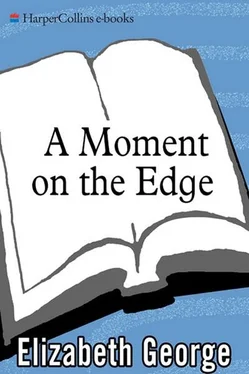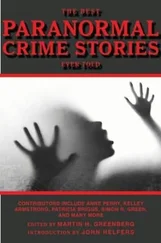We were sent off to bed as soon as we’d had our soup as usual.
Amanda went to sleep at once but I lay awake, resenting my exile from what mattered. Our parents’ sitting room was next to our bedroom and I heard them come in, excited still. Then, soon afterward, a knock on the door of our suite, the murmur of voices and my father, a little taken aback, saying yes come in by all means. Then their voices, Square Bear’s first, fussing with apologies about it being so late, then Silver Stick’s cutting through him: “The fact is, you’re owed an explanation, or rather your daughter is. Dr. Watson suggested that we should give it to you so that some time in the future when Jessica’s old enough, you may decide to tell her.”
If I’d owned a chest of gold and had watched somebody throwing it away in a crowded street I couldn’t have been more furious than hearing my secret about to be squandered. My first thought was to rush through to the other room in my nightdress and bare feet and demand that he should speak to me, not to them. Then caution took over, and although I did get out of bed, I went just as far as the door, opened it a crack so that I could hear better and padded back to bed.
There were sounds of chairs being rearranged, people settling into them, then Silver Stick’s voice.
“I should say at the start, for reasons we need not go into, that Dr.
Watson and I were convinced that Irene McEvoy had not pushed her husband to his death. The question was how to prove it, and in that regard your daughter’s evidence was indispensable.
She alone saw Mr. McEvoy fall and she alone heard what he shouted.
The accurate ear of childhood — once certain adult nonsenses had been discarded — recorded that shout as precisely as a phonograph and knew that strictly speaking it was only half a shout, that Mr.
McEvoy, if he’d had time, would have added something else to it.”
A pause. I sat up in bed with the counterpane round my neck, straining not to miss a word of his quiet, clear voice.
“No — something. The question was, no what? Mr. McEvoy had expected something to be there and his last thought on earth was surprise at the lack of it, surprise so acute that he was trying to shout it with his last breath. The question was, what that thing could have been.”
Silence, waiting for an answer, but nobody said anything.
“If you look up at the back of the hotel from the terrace you will notice one obvious thing. The third and fourth floors have balconies.
The second floor does not. The room inhabited by Mr. and Mrs.
McEvoy had a balcony. A person staying in the suite would be aware of that. He would not necessarily be aware, unless he were a particularly observant man, that the second-floor rooms had no balconies.
Until it was too late. I formed the theory that Mr. McEvoy had not in fact fallen from the window of his own room but from a lower room belonging to somebody else, which accounted for his attempted last words: “No…balcony.”
My mother gasped. My father said: “By Jove…”
“Once I’d arrived at that conclusion, the question was what Mr.
McEvoy was doing in somebody else’s room. The possibility of thieving could be ruled out since he was a very rich man. Then he was seeing somebody. The next question was who. And here your daughter was incidentally helpful in a way she is too young to understand. She confided to us in all innocence an overheard piece of adult gossip to the effect that the late Mr. McEvoy had a roving eye.”
My father began to laugh, then stifled it. My mother said “Well”
in a way that boded trouble for me later.
“Once my attention was directed that way, the answer became obvious. Mr. McEvoy was in somebody else’s hotel room for what one might describe as an episode of galanterie . But the accident happened in the middle of the morning. Did ever a lady in the history of the world make a romantic assignation for that hour of the day?
Therefore it wasn’t a lady. So I asked myself what group of people are most likely to be encountered in hotel rooms in mid-morning and the answer was…”
“Good heavens, the chambermaid!”
My mother’s voice, and Holmes was clearly none too pleased at being interrupted.
“Quite so. Mr. McEvoy had gone to meet a chambermaid. I asked some questions to establish whether any young and attractive chambermaid had left the hotel since last Christmas. There was such a one, named Eva. She’d married the under porter and brought him as a dowry enough money to buy that elegant little sleigh. Now a prudent chambermaid may amass a modest dowry by saving tips, but one look at that sleigh will tell you that Eva’s dowry might best be described as, well…immodest.”
Another laugh from my father, cut off by a look from my mother I could well imagine.
“Dr. Watson and I went to see Eva. I told her what I’d deduced and she, poor girl, confirmed it with some details — the sound of the housekeeper’s voice outside, Mr. McEvoy’s well-practiced but ill-advised tactic of taking refuge on the balcony. You may say that the girl Eva should have confessed at once what had happened…”
“I do indeed.”
“But bear in mind her position. Not only her post at the hotel but her engagement to the handsome Franz would be forfeited. And, after all, there was no question of anybody being tried in court. The fashionable world was perfectly happy to connive at the story that Mr. McEvoy had fallen accidentally from his window — while inwardly convicting an innocent woman of his murder.”
My mother said, sounding quite subdued for once: “But Mrs.
McEvoy must have known. Why didn’t she say something?”
“Ah, to answer that one needs to know something about Mrs.
McEvoy’s history, and it so happens that Dr. Watson and I are in that position. A long time ago, before her first happy marriage, Mrs.
McEvoy was loved by a prince. He was not, I must admit, a particularly admirable prince, but prince he was. Can you imagine how it felt for a woman to come from that to being deceived with a hotel chambermaid by a man who made his fortune from bathroom furnishings? Can you conceive that a proud woman might choose to be thought a murderess rather than submit to that indignity?”
Another silence, then my mother breathed: “Yes. Yes, I think I can.” Then, “Poor woman.”
“It was not pity that Irene McEvoy ever needed.” Then, in a different tone of voice: “So there you have it. And it is your decision how much, if anything, you decide to pass on to Jessica in due course.”
There were sounds of people getting up from chairs, then my father said: “And your, um, demonstration this morning?”
“Oh, that little drama. I knew what had happened, but for Mrs.
McEvoy’s sake it was necessary to prove to the world she was innocent. I couldn’t call Eva as witness because I’d given her my word.
I’d studied the pitch of the roof and the depth of the snow and I was scientifically convinced that a man falling from Mrs. McEvoy’s balcony would not have landed on the terrace. You know the result.”
Good nights were said, rather subdued, and they were shown out.
Through the crack in the door I glimpsed them. As they came level with the crack, Silver Stick, usually so precise in his movements, dropped his pipe and had to kneel to pick it up. As he knelt, his bright eyes met mine through the crack and he smiled, an odd, quick smile unseen by anybody else. He’d known I’d been listening all the time.
When they’d gone Mother and Father sat for a long time in silence.
At last Father said: “If he’d got it wrong, he’d have killed himself.”
“Like the skiing.”
“He must have loved her very much.”
Читать дальше












